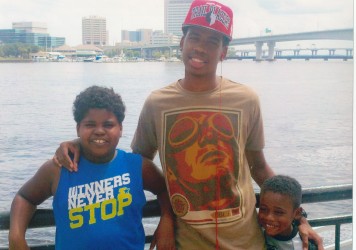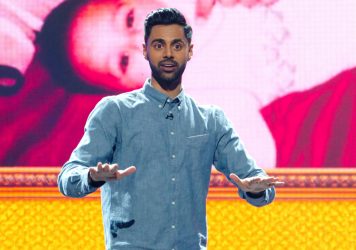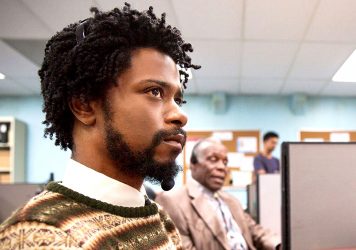With a breakout turn from Amandla Stenberg, this YA melodrama offers a fresh look at institutional oppression.
Talk of ‘civility’ and ‘debate’ has become common in American politics and media in the face of protests with minorities at the centre. For black people, this not-so-subtle coded language is a call for silent obedience. The idea means the suppression of their voices, their character, and more, just to fit in. The Hate U Give, to varying degrees of success, says fuck all that.
The film opens big, with Starr Carter (Amandla Stenberg) receiving ‘the talk’ from her father Maverick (Russell Hornsby), about what to do when being pulled over by the cops. This culminates in Maverick describing what he considers “our own bill of rights”, the Black Panther’s 10 Point Program – a manifesto for what we deserve and how to get it, by any means we can. A lot of the film rests on Stenberg’s performance as Starr, and she shoulders that responsibility with ease. After a childhood friend is killed by a police officer, we follow Starr from reluctant civility to protest as the film links insecurities large and small, micro-aggressions to institutional oppression.
The title of Angie Thomas’s source novel is lifted from a 2Pac quote about his ‘THUG LIFE’ tattoo, which supposedly stood for ‘The Hate U Give Little Infants Fucks Everybody’. The book, and by extension the film, uses this as a thesis, tracing hatred from its institutional origins to its heartbreaking end point. It goes for far more painful, prescient subject matter than most YA adaptations, and feels fresh because of it.
The film’s interrogation of what civility really means for black people is where Starr 2.0 enters the scene – the version of herself that goes to a school for wealthy white children. This version code-switches; she doesn’t use slang, doesn’t speak up, doesn’t want anyone to think she’s ‘ghetto’. Her white classmates are allowed to use the things that would signify her as a black person, but in order to fit in, Starr can’t. The film paints a wide picture of what it means to live in a society that desires the silence of minorities, from code-switching, to stop and search encounters, to police shootings and their far-reaching aftermath.
The script by the late Audrey Wells takes a blunt-force approach to proceedings, making sure that audiences outside of this lived experience are familiarised with what certain things mean or how they make a person feel. In the film’s best moments it feels both empathetic and confrontational; at worst it can feel a little overwritten, as in the scenes set at Starr’s high school and with her white boyfriend Chris, played by KJ Apa (aka Hot Archie from TV’s Riverdale). There are some odd lines that land with a thud, and it doesn’t help that George Tillman Jr’s direction is mostly workmanlike.
That said, the film’s successes outnumber its missteps and there are some striking images in the intense third act. Taking big swings at the notion that human rights can be debated, The Hate U Give makes up for any misgivings over the heavy-handedness of the writing with a righteous anger and burning passion. It’s a well-made adaptation and a decent YA film in its own right, its occasionally clunky script held together by powerful performances.
Published 23 Oct 2018
Looks interesting, but starting to feel burnt out on YA fiction.
Intimate, empathetic and surprisingly powerful. Also, Archie is there!
Worthwhile, but the dialogue lingers in the mind far more than the imagery does.

By Simran Hans
Moving social commentary is undermined by director Marc Silver’s storytelling insufficiencies.

By Grace Wang
His latest stand-up special, Homecoming King, articulates what it means to grow up as an outsider.

By Matthew Eng
Boots Riley’s surrealist vision of corporate servitude is a comedy with plenty of willpower and zero apologies.